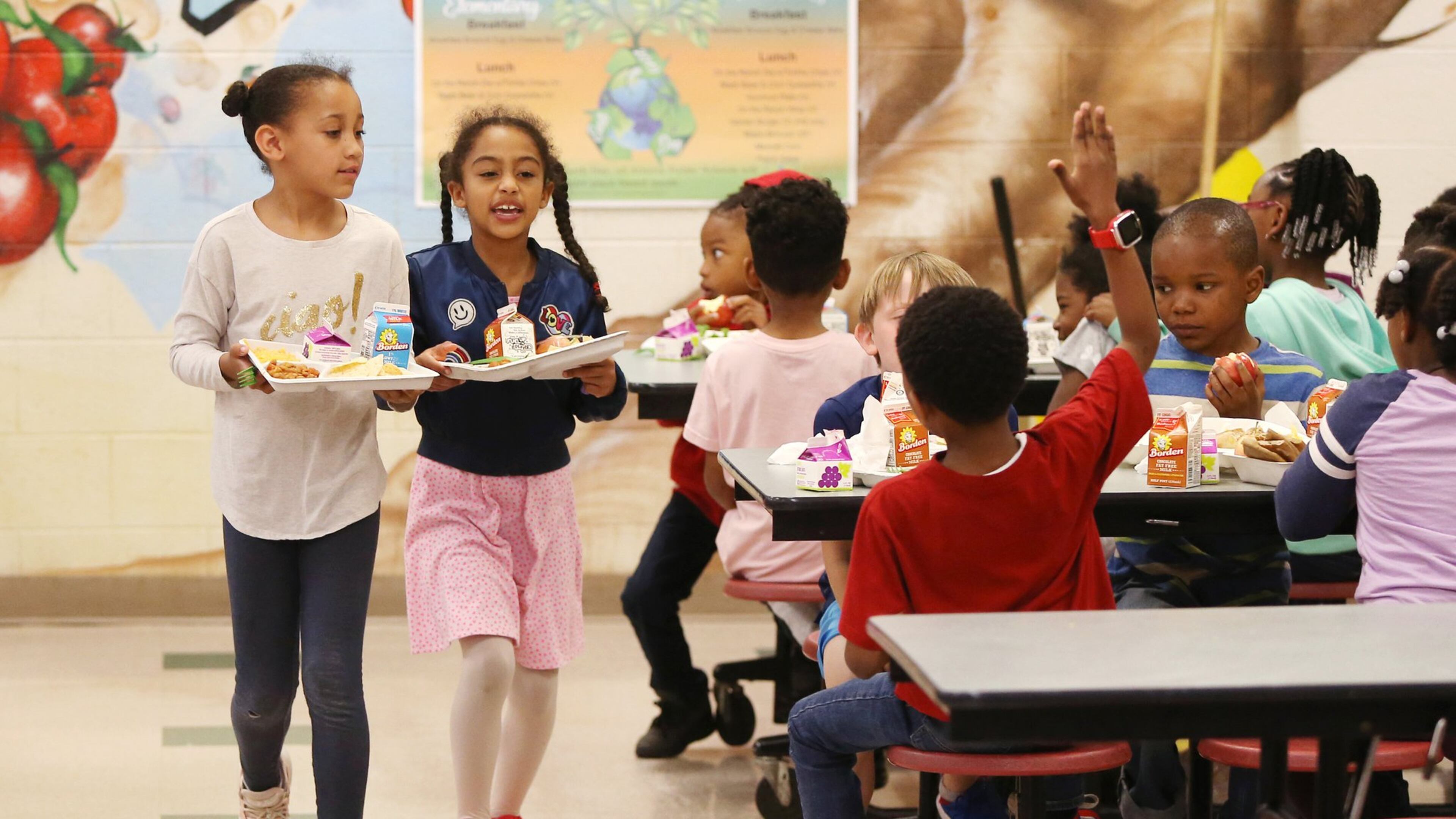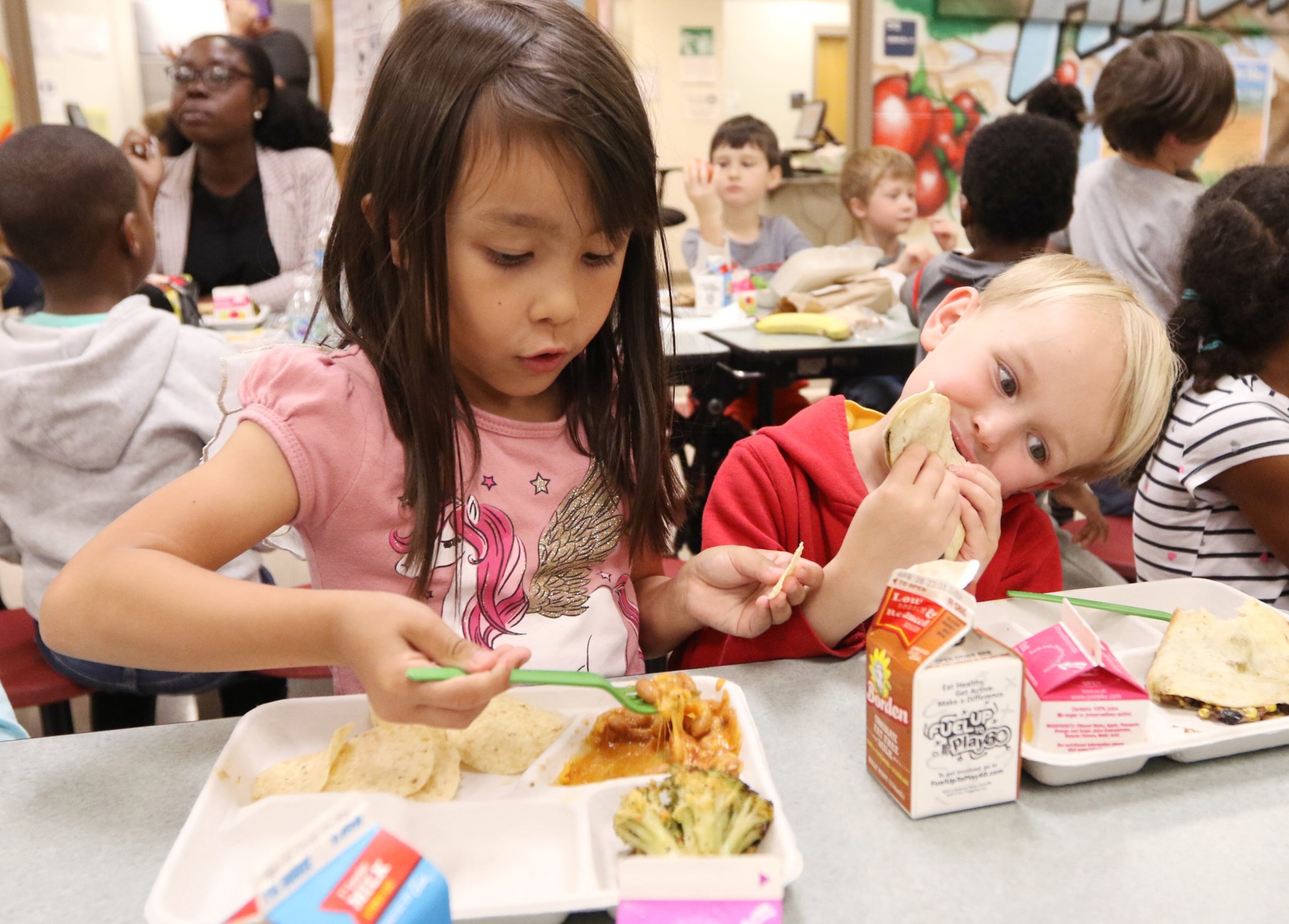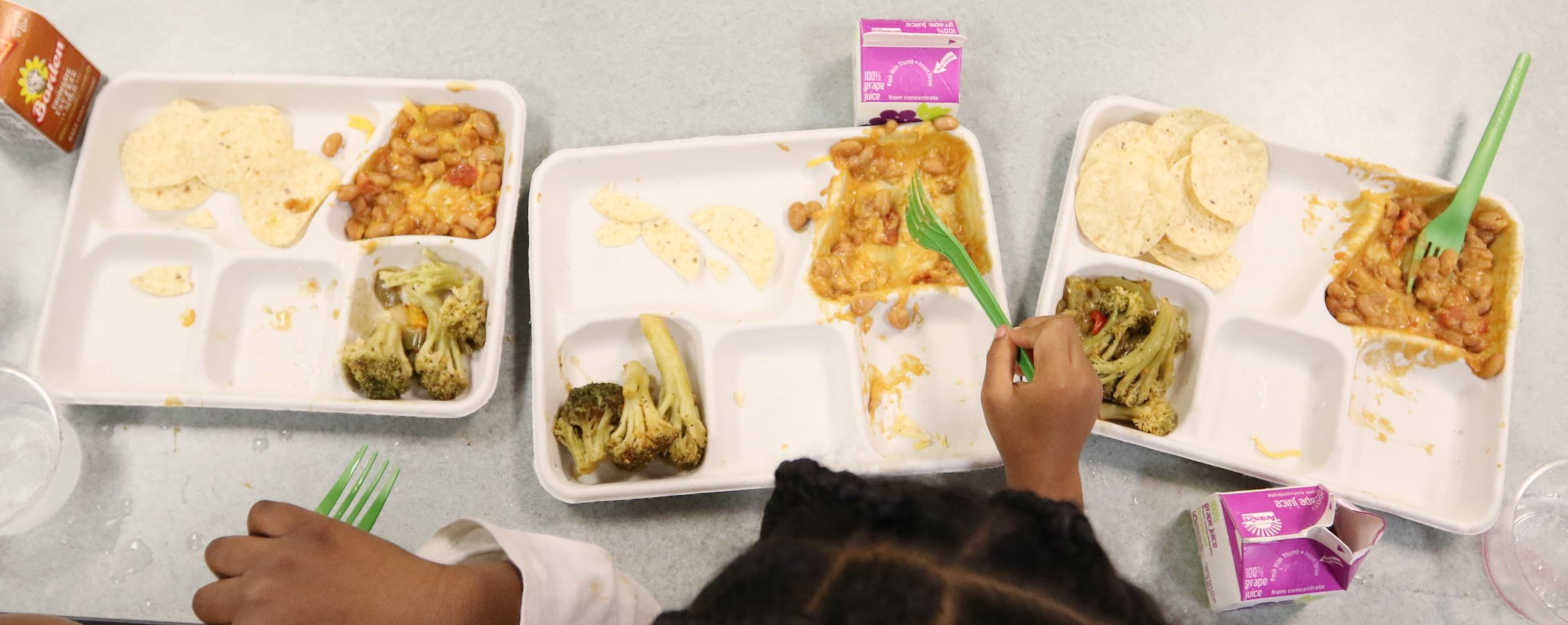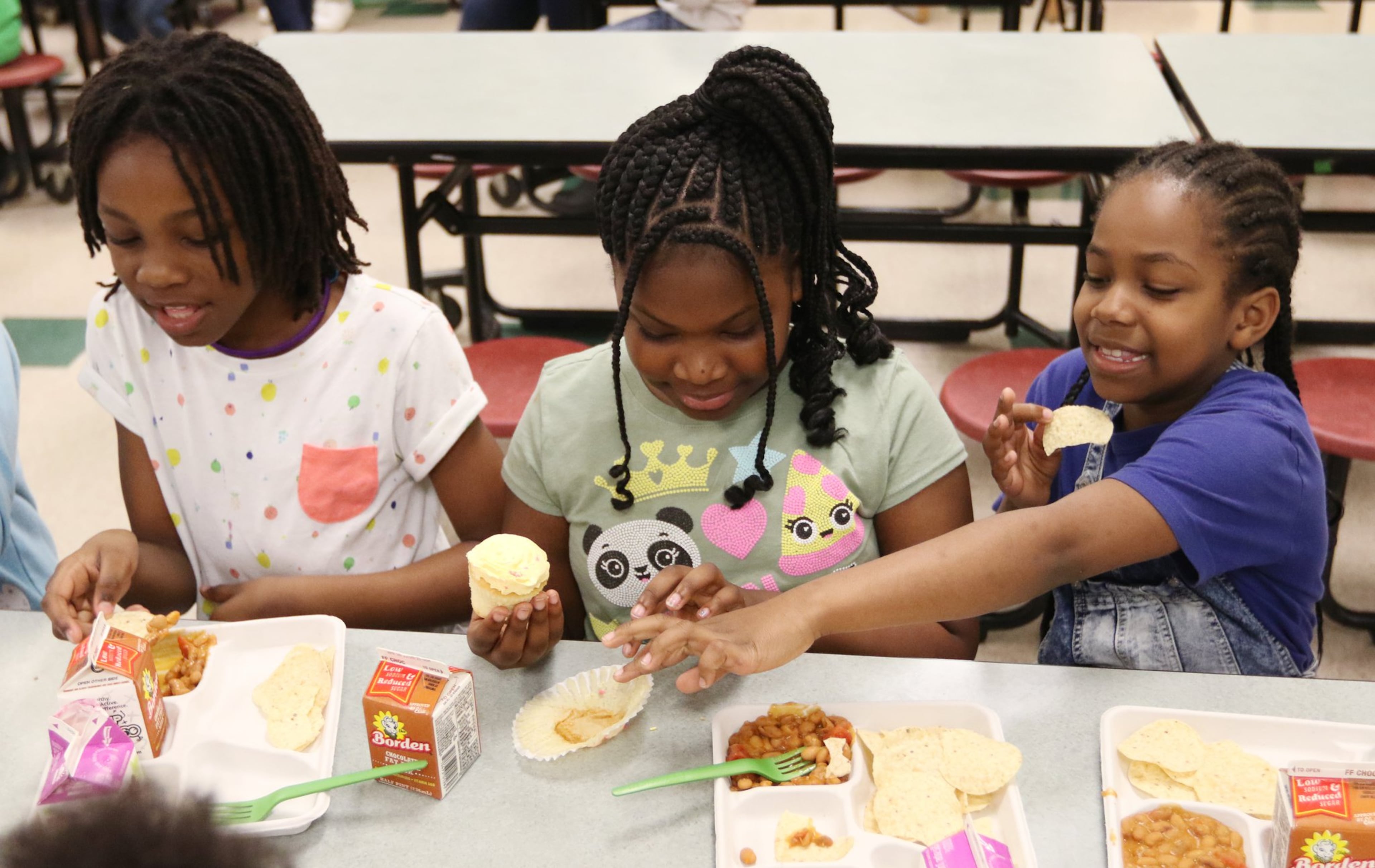APS, other districts swap plastic foam lunch trays to aid environment

A group of metro Atlanta parents are pushing school districts to be more environmentally sustainable, starting with the lunch line.
Consider this mind-boggling number: Atlanta Public Schools goes through about 8.4 million trays to serve students breakfast and lunch each year.
Next year, the 52,000-student district plans to replace plastic foam trays with biodegradable ones.

The switch will cost APS up to $500,000, and the new trays will be used in all but 11 charter schools that contract with other vendors for meal services.
The change will reduce the district’s carbon footprint and help the environment, said Marilyn Hughes, executive director of school nutrition, in a written statement.
The district offered a sneak peek Friday. In recognition of Earth Day, about 15 APS school cafeterias used biodegradable meal trays, salad bowls, utensils and cups made out of renewable materials such as sugar cane and bamboo.
DeKalb County School District plans a similar initiative Monday, when all of its schools will use compostable trays for lunch made out of recycled, molded fiber instead of the normal polystyrene foam trays.
Two DeKalb elementary schools — Fernbank and Sagamore Hills — already use biodegradable trays daily and also compost and recycle.
DeKalb officials are evaluating the cost of the two pilot programs. Next year, the district plans to start using dish-washing machines in 15 schools, allowing them to cut back on plastic.
Gwinnett County Public Schools’ plastic foam lunch trays can be recycled, but spokesman Bernard Watson said the district hasn’t found a company that will do it. The district is aiming to start using biodegradable trays next school year, and those new trays would break down in a landfill within 90 days, he said.
Such changes are welcomed by parents who formed the Atlanta Area Schools Sustainability Initiative, a group advocating for environmentally friendly practices.
“Every time I have lunch with my kids I cannot believe that in this era that there is Styrofoam,” said Joanna Kobylivker, who has two children at Atlanta’s Morningside Elementary. “I hate the mixed messages that we give kids. We are telling them to be good stewards of this earth — to conserve, reuse, recycle — and twice a day they are eating on Styrofoam.”

Suzanne Welander, who has a child at Atlanta’s Parkside Elementary, said she’d like to see APS create “zero-waste cafeterias” throughout the school district.
That would mean doing things like composting food waste and getting rid of single-use plastic products.
Ultimately, advocates want school districts to use washable, reusable products wherever possible.
They said replacing plastic foam is a good first step, but they don’t want the new, greener trays to still end up in a landfill. If it’s a compostable tray, schools should compost it.
APS hasn’t said if it will compost or trash the biodegradable trays the district will start using next year. Hughes said APS is doing “extensive research into the most environmentally friendly” way to dispose of them.
Atlanta schools stopped using washable trays because of concerns about conserving water and the cost to keep dishwashers up and running.

Stacey Lusk, a parent of two Fernbank students, said the changes at her childrens' DeKalb school include swapping plastic utensils for reusable silverware. She said the school has diverted more than 17,000 pounds of waste from landfills since September.
It’s also important to introduce sustainable practices in schools, Lusk said, because then children “become advocates and educators themselves.”



